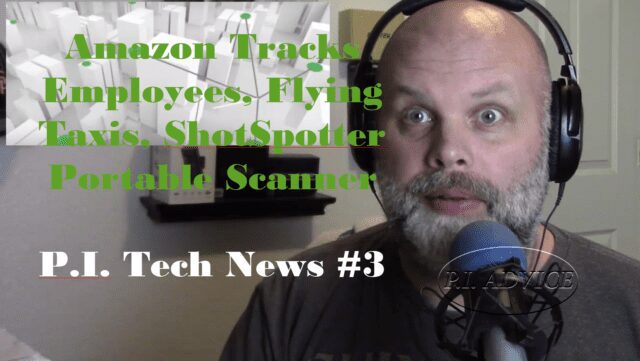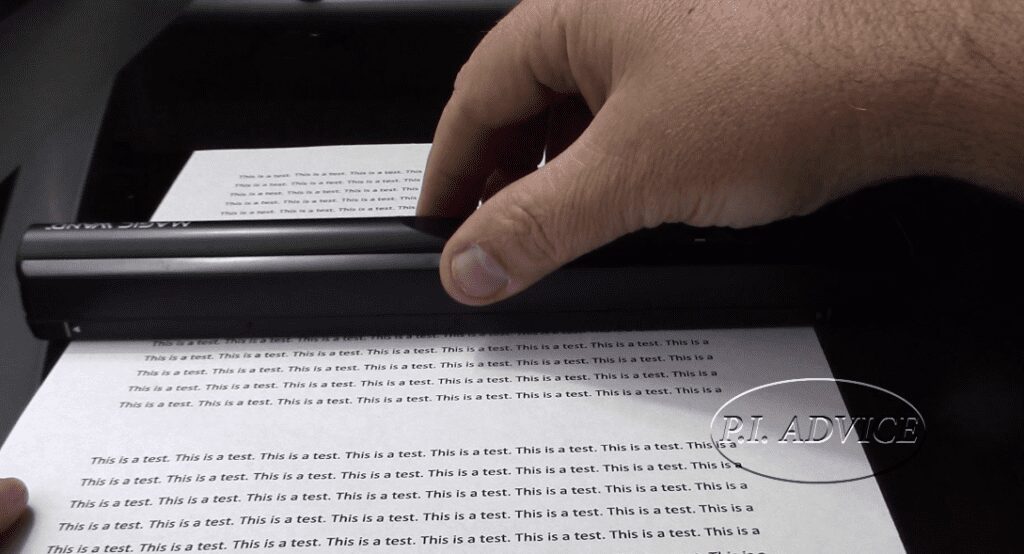This week I found some really interesting tech related news stories for investigators. As a reminder, I will be sharing technology that relates to investigators to help investigators and future investigators with being up to date on technology trends.
Here we go.
Amazon wins a patent for wireless wristbands that can track employees in their warehouses.
Amazon has won patents for a bracelet that can assist employees working in the warehouse to locate and pull products faster for delivery.
Apparently, every warehouse employee has a handheld computer which alerts employees of what product needs to be pulled and delivered from shelves.
The ultrasonic bracelet, in theory, would vibrate in a manner to help employees locate exactly where on the shelves the product is located. They would reduce the time it would take for an employee to find a product.
Many articles being posted already believe that this is another way to track employees more carefully in an already stressful environment within Amazon. Amazon has been known to have unhappy employees and the least loyal employees in the past with regards to employee retention.
Quick thoughts on wireless wristbands that track employees
Though this apparently is not stated in the patent itself, many articles have been written indicating that this may really be a way to track their employees more closely to determine if they are being efficient or not while on the job.
I am not in favor of a super big brother within the workplace as I believe it breeds a bad culture within a company. There are investigation companies that track their investigators through GPS devices and through apps on phones currently. I won’t work for companies that attempt to track me in any capacity.
With that being said I can see how this could benefit a company like Amazon in relation to workplace injuries or alleged injuries and help them determine if there is possible fraud involved.
Sources:
VuPoint Magic Wand Portable Scanner Review
This week I reviewed an affordable portable scanner that I think is ideal for field investigators. It is small and lightweight. Be sure to check out the review.
ShotSpotter System in Cities Helps Police Respond Faster To Gun Shots
While looking at another news story involving Louisville, Kentucky I found this story.
Louisville started a new program in June of 2017 which has been named the ShotSpotter System.
It took a year of planning and implementation to get this program on its feet and I hope it has provided some help to their city.
This gunshot detection system uses a series of microphone sensors to find the location of gunfire in seconds.
When the original story was released the microphone system covered 6 square miles at a cost of 1.25 million dollars over 3 years.
A police officer can monitor gunshot detections from their in-vehicle computer or through an app on their phones. Having this system would eliminate the time it takes for someone to call in when they hear gunshots. Many gunshots go without calls to police altogether.
The system can also detect whether the weapon was an automatic weapon or not.
The police department believes it will assist them with catching bad guys fleeing from the scene because officers will be alerted within 30 seconds gunfire happening.
https://www.youtube.com/watch?v=HI-vH5GVbKQ
Quick thoughts on the ShotSpotter system
As I read this a few things came to mind.
If this information was public information (which I hope it is) this type of technology could assist private investigators as a resource potentially.
What if this type of technology was expanded to different types of sounds in addition to gunshots What if it could hear screams for help, cars peeling out or even vehicle accident sounds.
How many single car vehicle accidents are there where the driver is the only witness to the accident? If this technology could support or disprove a person’s accident claim in regards to time and location, it could impact fraud greatly.
This type of technology could expand to many other things. Some good and some bad. It could potentially violate privacy so it will have to be monitored.
Airbus Tested Their Flying Taxi
Airbus announced in early 2017 that they would test a self-flying single passenger vehicle by the end of 2017. Airbus has been developing and working on autonomous vertical take-off and landing through Project Vahana.
Airbus finally did test what they now call a flying taxi recently with two successful flights.
Each flight lasted less than one minute while reaching a height of 16 feet. This is the early stages of development for something with a great deal of potential.
The possible future for this flying taxi is short flights transporting people and goods.
My thought on flying vehicles
Like any invention, it might start off with one direction and pivot in many other directions. I can see this technology branching off to personal flying autonomous vehicles.
If this technology is ever realized completely, imagine how this would impact private investigations from surveillance to traveling to different assignments. This could eliminate long commutes for field investigators.
They aren’t the only ones trying to develop a flying taxi. Uber, Kitty Hawk, Ehang, Pal-V Liberty, Aeromobil 3.0, Project Zero and Volocopter are also in the process of creating flying vehicles.
- Uber
- Kitty Hawk
- Volocopter
- Ehang
https://www.youtube.com/watch?v=w2L0PMxn1og
If you know of some technology that might be related to investigators message me through the contact page and I will be sure to check it out and share it with the community.
Andrew
Recent Posts
Hawaii is probably one of the most interesting states to work as a private investigator if you are not used to the culture or a native of the state. And if you are not a local, that is something...
How to become a private investigator in Georgia


